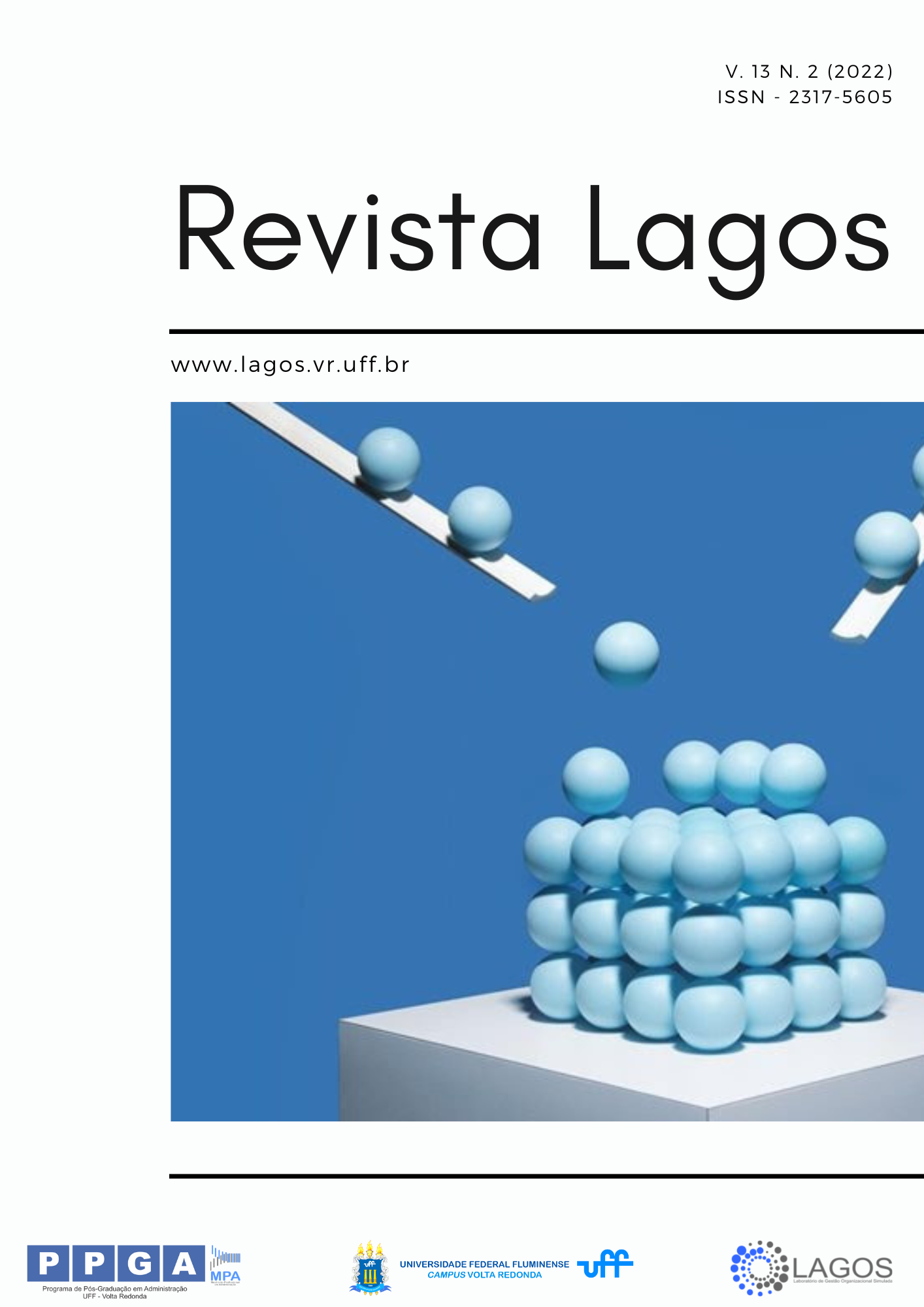Employee compensation and its impacts on business games
Keywords:
Business game, Simulation, Conceptual modeling, Education, TrainingAbstract
This article aims to analyze the changes in the rates of return on investment in relation to the value of the wholesale company remuneration in a simulated environment. For that, we carried out a study of a simulated company in the Laboratory of Simulated Management, taught in a public institution of higher education in the undergraduate course in administration. A theoretical review of salespeople, compensation investments, and corporate games is provided. This study is exploratory in nature and data from company reports were analyzed. It was concluded that, in a way, increasing or decreasing investment in the sales sector would not bring a positive return to the company.
References
Alves, V. L. (1991). Direct marketing em Portugal: conceitos para uma estratégia de sucesso.
Aranha, Eduardo de Sousa Suporte à força de vendas. Revista de Administração de Empresas [online]. 1987, v. 27, n. 1 [Acessado 15 Dezembro 2021] , pp. 57-61.
BLACKWELL, Roger; MINIARD, Paul; ENGEL, James F.(2005). Comportamento do consumidor. São Paulo: Thompson.
BRUM, J. M.; GEREMIA, T.; KUHN, C. M. S.; XAVIER, C. T.; (2014). Remuneração como fator motivacional –custo x benefício. Disponível em: <http://www.webartigos.com/artigos/remuneracao-como-fator-motivacional-custo-x-beneficio/119455/> Acesso em: 20 janeiro 2022
CHIAVENATO, Idalberto. (2010). Gestão de pessoas: o novo papel dos recursos humanos nas organizações. 3ª ed. Rio de Janeiro. Elsevier.
CHIAVENATO, I. (2010). Gestão de Pessoa-o novo papel dos recursos humanos nas organizações. 3ed. Rio de Janeiro: Elsevier.
Gatti, B. A. (2002). A produção da pesquisa em educação no Brasil e suas implicações. A Construção da Pesquisa em Educação no Brasil. Brasília: Plano Editora, 09-40.
Gerhardt, T. E., Ruiz, E. N., & Silveira, D. T. (2010). Disciplina Metodo de Pesquisa: Uma Experiência de Tutoria no Ensino A Distância no Plageder.
GRAMIGNA, M. R. M.. (1995). Jogos de empresa e técnicas vivências. São Paulo: Makron Books.
HANASHIRO, D. M. M. (2008)Gestão do fator humano: uma visão baseada nos stakeholders. 2ªed. São Paulo: Saraiva.
LOURENÇO, Carlos Joaquim. (2012) Salário e remuneração: breves considerações acerca da legislação trabalhista brasileira. In: Âmbito Jurídico, Rio Grande, XV, n. 102, jul 2012. Disponível em: <http://www.ambito-juridico.com.br/site/?n_link=revista_ >
MARQUES FILHO, P. A. (2001) Jogos de Empresas: uma estratégia para o ensino de Gestão e Tomada de Decisão. São Paulo. 175 p. Dissertação (Mestrado em Engenharia de Produção) -Universidade Paulista.
PONTES, Benedito Rodrigues.(2011) Administração de Cargos e Salários, 15ª ed. São Paulo. LTr.
Sauaia, A. C. A. (2006). Conhecimento versus desempenho das organizações: um estudo empírico com jogos de empresas. Revista eletrônica de administração, 12(1).
Sauaia, A. C. A. (2008). Laboratório de gestão: simulador organizacional, jogo de empresas e pesquisa aplicada. Editora Manole.
SCHULTZ, T. W. (1987). O valor econômico da educação Rio de Janeiro: Zahar Editores.
Silva, S. S., Oliveira, M. A., & Motta, G. S. (2013). Jogos de empresas e método do caso: contribuições ao processo de ensino e aprendizagem em administração. Administração: Ensino e Pesquisa, 14(4), 677-705.
SMITH, A. Sobre os salários do trabalho. São Paulo: Abril Cultural, 1975. (Os Pensadores).
Souza, R. F., & Vesco, D. G. D. (2018). Influência da Remuneração e do Capital Humano no Crescimento Interno da Firma. Advances in Scientific and Applied Accounting, 11(2), 308-329.
Souza, K. R., Kerbauy, M. T. M. (2017). Abordagem quanti-qualitativa: superação da dicotoamia quantitativa-qualitativa na pesquisa em educação.
XAVIER, C. A importância da gestão estratégica de pessoas nas empresas. 2011. Disponível em: <http://www.administradores.com.br/artigos/marketing/a-importancia-da-gestao-estrategica-de-pessoas-nas-empresas/55500/> Acesso em: 20 janeiro 2022
Vlachos, I. P. (2011). The effects of human resource practices on firm growth. Human Resource Management: Issues, Challenges and Opportunities, 108.
Downloads
Published
How to Cite
Issue
Section
License
Revista LAGOS, in accordance with Law No. 9,610, of February 19, 1998, which alters, updates and consolidates the legislation on copyright and takes other measures, adopts the following conditions of the Assignment of Copyright:
The Journal of the Simulated Organizational Management Laboratory (LAGOS) maintains, with the assignment of copyrights, the possession of the rights over the contents published by it;
The author retains his moral rights to the content, including the right to be identified as the author whenever the content is published;
Despite the attribution of copyright, the author retains the right to reuse the material in future collections of his own work free of charge. The acknowledgments of the previous publication in Revista LAGOS are the only requirements in such cases;
The author may make photocopies of the content, or distribute it by e-mail or fax, provided that they are intended for his own classes and for the purpose of meeting research objectives, provided that: (a) such copies are not resold and (b) reference to the original source of the publication and the name of Revista LAGOS are clearly indicated on all copies made of the material.
Revista LAGOS reserves the right to make changes in the originals in order to maintain the cultured standard of the language, while ensuring the style of the authors.
Published works become the property of Revista LAGOS.
The opinions expressed by the authors are their sole responsibility.











